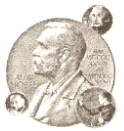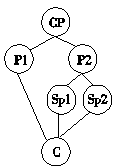题目内容
【题目】假定英语课上老师要求同桌之间交换修改作文,请你修改你同桌写的以下作文。文中共有10处语言错误,每句中最多有两处。每处错误仅涉及一个单词的增加、删除或修改。
增加:在缺词处加一个漏字符号(∧),并在其下面写出该加的词。
删除:把多余的词用斜线(\)划掉。
修改:在错的词下划一横线,并在该词下面写出修改后的词。
注意:1.每处错误及其修改均仅限一词;
2.只允许修改10处,多者(从第11处起)不计分。
I am the only child of my family, my parents give me all the things I want to. I feel so satisfying with the life I own. However, I used to forgetting to share happiness with others. One day, I went to Wang Mei’s birthday party. After I made a wish and blew all the candle out, I couldn’t wait to eat the birthday cake. I took a piece of cake and started to eat it immediate. Meanwhile, I saw Wang Mei were cutting the cake for our friends. See our friends sharing the cake together, I learned an important lesson which sharing promotes communication and happiness.
【答案】
【解析】
本文是记叙文。文章讲述自己参加朋友生日聚会,学会了分享促进沟通和快乐的道理。
第一处:考查连词。句意:我是家里唯一的孩子,(所以)父母给了我所有我想要的东西。结合句意可知,前后句为因果关系或并列关系。故在my前加so/and。
第二处:考查动词用法。此句为定语从句,先行词为the things,在从句中作动词want的宾语。want为及物动词,直接接名词作宾语,want to后需接动词形式。故将to去掉。
第三处:考查形容词。句意:我对自己的生活很满意。satisfying(某物)令人满意的,satisfied(人)感到满意。主语是I,所以用形容词satisfied,表示人的主观感受。故将satisfying改为satisfied。
第四处:考查短语。句意:然而,我过去常常忘记与别人分享快乐。used to do sth.过去常常做某事。故将forgetting改为forget。
第五处:考查代词。根据前句可知,作者参加王梅的生日聚会,所以是王梅许愿和吹灭蜡烛,并非作者。故将I改为she。
第六处:考查名词的数。名词candle为可数名词,根据前面的修饰词all可知用复数形式。根据candle改为candles。
第七处:考查副词。修饰动词eat用副词形式。故将immediate改为immediately。
第八处:考查主谓一致或非谓语动词。宾语从句的主语是Wang Mei,为单数,所以谓语动词用单数形式was;或Wang Mei与动词cut之间为主动关系,所以用现在分词作宾语补足语。故将were改为was或去掉were。
第九处:考查非谓语动词。句中逻辑主语I 与see之间为主动关系,所以用现在分词作状语。故将see改为seeing。
第十处:考查名词性从句。此句为同位语从句,此句sharing promotes communication and happiness.解释说明名词lesson,此句不缺少成分且句意完整,所以用连接代词that引导。故将which改为that。





